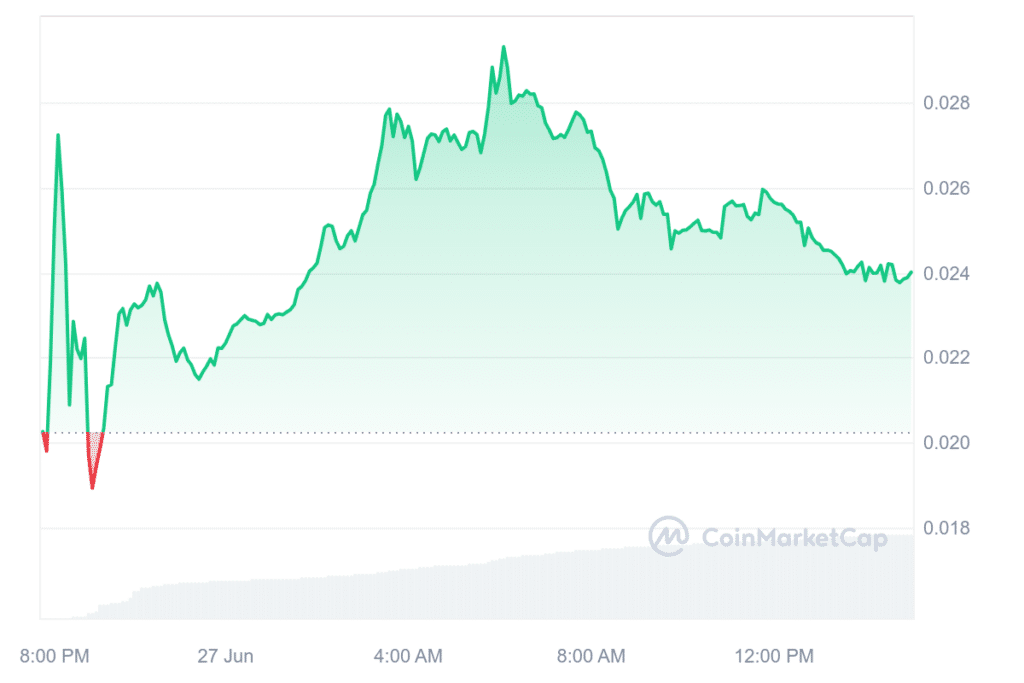BLAST, the native token of Ethereum layer-2 scaling solution Blast, surged 20% following its launch while a deluge of fake airdrop posts flooded X.
BLAST debuted at $0.02 per token, giving it a fully diluted value (FDV) of $2 billion at launch, according to aggregated data from Ambient Finance and the perps trading platform Aevo.
Created by makers of the incentivized NFT marketplace Blur, Blast’s distribution yielded an initial market cap of $392 million.
BLAST’s price has now risen slightly more than 20% to $0.024 at the time of publication, according to CoinMarketCap data. The crypto asset now has a market capitalization of $408 million and a daily trading volume of $730 million.

The airdrop released 17% of BLAST’s total supply, with 7% allocated to users who bridged Ether or USD on Blast (USDB) to the network since late last year.
Another 7% was distributed to users who contributed to the success of decentralized applications (dApps) on the network, and 3% was reserved for the Blur Foundation for future community airdrops.
Blast, created by the makers of the incentivized NFT marketplace Blur, faced significant challenges from scammers on social media.
Numerous fraudulent posts claimed that Blast’s airdrop had started sooner than expected. These posts, bearing the same profile picture and display name as Blast’s legitimate X account, directed users to fake websites and boasted “Gold checkmarks” introduced by the platform’s current owner, Elon Musk.
Some of these suspicious links even infiltrated Blast’s official Discord server before being removed by a community moderator.
One victim reportedly lost $217,000 worth of crypto after visiting a phishing site, as detailed by the cybersecurity firm Scam Sniffer. The user had unknowingly signed multiple malicious transactions, highlighting the ongoing challenges in combating bad actors on the platform.
🚨 Attention! 🚨
— AegisWeb3 (@AegisWeb3) June 27, 2024
With the recent surge in popularity of $BLAST, it has come to our attention that there is an alarming increase in phishing attempts. Fraudsters are sending out fake $BLAST airdrop messages on platform X, aiming to deceive unsuspecting individuals. 😱 pic.twitter.com/JEpbciavpG
Despite the airdrop’s success in distribution, it attracted criticism from market commentators on X, particularly regarding the absence of a staking mechanism for BLAST tokens.
Moreover, some BLAST token holders expressed intentions to sell their airdropped tokens immediately upon the opening of perpetual markets.
$BLAST
— Mac 🐺 (@MacnBTC) June 26, 2024
remember to dump all of your bag the second they open perps https://t.co/9VwuQGuWP8 pic.twitter.com/VCrvtSmfwv
Blast’s airdrop marks the second Ethereum layer-2 blockchain airdrop in June, following the zkSync airdrop earlier in the month.
The zkSync token distribution faced heavy criticism from the community, with claims that many users were left out in favor of Sybil addresses—multiple wallets created by the same user to claim a large number of tokens.
